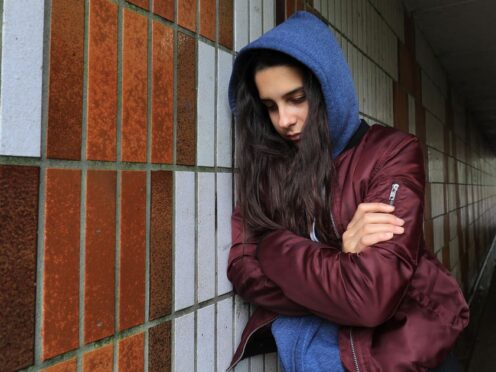People in rural Scottish communities experience less loneliness, according to a new study.
Research led by the University of Glasgow (UOG) suggests people living in urban areas are more likely to experience loneliness and poorer well-being, when compared with more sparsely populated areas of the country.
In a study, named: Loneliness, Social Support, And Social Networks: Urban-rural Variation And Links To Well-being In Scotland has been published in the Journal Of Public Health.

It looks at differences in social support, social networks and loneliness between urban and rurally-based people.
Research says social support was broadly the same on both ends of the spectrum, but said urban residents had higher rates of loneliness and poorer wellbeing overall, and that social support and emotional closeness with others were related to better well-being.
Researchers stressed in the study that this “reaffirms the importance of close social contact for an individual’s overall well-being”.
The study found the reason rurally-based individuals experience less loneliness is because they had more contact with people of different ages.
Social isolation can lead to poor mental and physical health, and can even lead to an earlier death.
One in five adults experience loneliness and more than three million in England have reported similar feelings in a recent survey, with the World Health Organisation announcing in 2021 that social isolation should be a public health priority.
The study was funded by the UOG’s Medical Research Council and the Scottish Government’s Chief Scientist Office (MRC/CSO).
Emily Long, study lead and research fellow at the (MRC/CSO)’s Social and Public Health Sciences Unit, said: “We believe this could be due to the smaller population of rural areas, limiting the social pool and encouraging rural adults to seek social relationships with people in different life stages than themselves.
“Our study shows that multiple dimensions of relationships are important to well-being, and that efforts to strengthen these relationships are particularly needed in urban areas.
“There’s something about these environments that makes people more vulnerable to loneliness.
“Our research suggests that programmes and initiatives should focus on improving the exchange of support and building closeness in existing relationships, rather than relying on activities that are only aimed at building more social connections.”
A Scottish Government spokesperson said: “We know that social isolation and loneliness is a public health issue, which has been exacerbated because of the pandemic. That is why, since 2020, the Scottish Government has invested over £100 million in community-based mental health support. This investment is a significant step forward in supporting people’s mental health and well-being by making sure they can easily access the help they need, when and where, they need it.
“Earlier this week, the First Minister announced a further £30 million of funding to support projects working to improve mental health and well-being, build resilience and tackle social isolation, loneliness and mental health inequalities. This announcement now means that since 2020 we have invested over £130 million in community-based mental health support, with an estimated 300,000 people benefiting from the adult projects in the first year.
“This is in addition to our delivery plan to tackle social isolation and loneliness, our continued work with the advisory group to inform activity within the plan and funding of over £3 million that provides opportunities for people to connect in their communities.”
